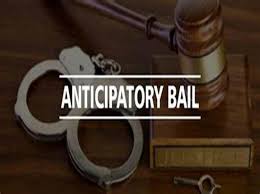Latest News
Limited validity of an anticipatory bail

In apprehension of arrest due to a complaint filed against an individual for a non-bailable offence, such an individual can avail the provisions of law under the Indian Penal Code for the purpose of safeguarding himself/herself from such arrest. Section 438 of the Indian Penal Code provides for the grant of bail on the apprehension of being arrested. The question put forth before the Supreme Court by way of a Special Leave Petitions was heard by a bench headed by Justice Kurian Joseph as it noted contradictory views in earlier judgments as to whether an anticipatory bail should be for a limited period of time or not.
The accused, in Sushila Aggarwal’s case, was granted anticipatory bail by the Hon’ble High Court of Delhi. Challenging the same, the complainants filed a Special Leave Petition before the Hon’ble Supreme Court. During the pendency of the SLP, the charge sheet was filed under Section 173(2) Cr.P.C. In view of the filing of the charge sheet, the question arose. On behalf of the accused it was contended that in view of the judgment of the Constitution Bench in Sibbia’s case and Siddharam’s case, the accused is not required to surrender and obtain regular bail and the accused is entitled to the benefit of anticipatory bail granted by the High Court till the end of the trial. Having considered the Judgment of the Constitution Bench in Sibbia’s case and the conflicting opinions of the two/three-judge bench judgments, the Court was pleased to appoint an Amicus Curiae. Ld. Amicus Curiae pleaded for a very narrow and restricted interpretation of Section 438 of the Code, in granting anticipatory bail, which is plainly contrary to the dictum of the Constitution Bench in Sibbia’s case
Due to the conflicting views the different Benches of varying strength on the issue of anticipatory bail and its limitations, the three-judge bench was asked to authoritatively settle the to decide upon the two important questions that needed clarity and conformation:
- Whether the protection granted to a person under Section 438 CrPC should be limited to a fixed period so as to enable the person to surrender before the trial court and seek regular bail.
- Whether the life of anticipatory bail should end at the time and stage when the accused is summoned by the court.
While the Constitution Bench verdict in Gurbaksh Singh Sibbia's case held that anticipatory bail should not be for a limited period, the three-judge bench verdict in Salauddin Abdulsamad Shaikh?s case without referring to the aforementioned Constitution Bench verdict, held that anticipatory bail orders should be of a limited duration only and ordinarily on the expiry of that duration or extended duration the court granting anticipatory bail should leave it to the regular court to deal with the matter on an appreciation of evidence placed before it after the investigation has made progress or the charge-sheet is submitted. Therefore, in the light of the two conflicting schools of thought, the matter needs consideration by a larger Bench. Even the Constitution Bench in Sibbia Case does not, in so many words, lay down a proposition that the protection of anticipatory bail is available to an accused until the conclusion of the trial. The Court noticed that in Sibia?s case, the Court has only briefly dealt with the question of duration of anticipatory bail and has not laid down the law that once an anticipatory bail, it is an anticipatory bail forever.
Anticipatory bail for a limited duration puts unnecessary fetters on the right to personal liberty guaranteed by the Constitution, and to make matters worse – these are fetters which were never envisaged by the legislature. In light of the plain language of Section 438 of the CrPC, the clear dictum in Sibbia and its jurisprudentially correct exposition in Mhetre, the reference made by the Supreme Court recently in Sushila Aggarwal (2018) may not be legally warranted or justifiable. Having said that, it is hoped that the Constitution Bench (now seized of the matter pursuant to the reference) while resolving this perceived incongruity, takes into account and gives due weightage to the 'liberty/due process element' which is at the very heart of the law relating to anticipatory bail.
Document:



































































































